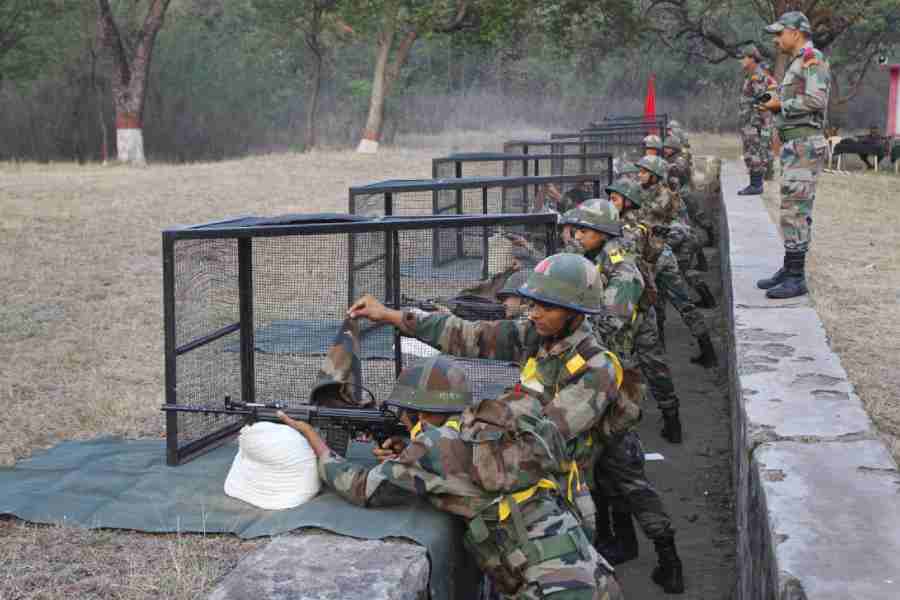The army chief, General Upendra Dwivedi, has said India has given its proposals to the Nepal side on the resumption of recruitment of Gorkhas in the army.
The recruitment of Gorkhas in the Indian Army has not taken place in four years because of the pandemic and then the Himalayan nation’s refusal to allow its ethnic community to join the Indian armed forces under the controversial Agnipath scheme
"As far as Agnipath is concerned; as you are aware that this is not the subject that the army chiefs will discuss and it's a political decision. And, as far as India is concerned; India has already given its proposals to the Nepal side and as and when we hear from the Nepal side we'll be working towards that," the Indian Army chief said at his annual press conference.
He was responding to a specific question on whether there was any talk on resumption of Gorkha recruitment during his recent visit to Nepal.
The recruitment of soldiers from Nepal has been suspended since 2020 following the Covid-19 pandemic and the introduction of the Agnipath scheme in 2022, under which soldiers, called Agniveers, are recruited for four years and have no retirement benefits. They are not entitled to gratuity or pension and 75 per cent of them will be demobilised after the completion of four years while the rest retained as regular cadre based on merit and organisational requirements.
Before the scheme, a fit general-duty soldier had to serve 15-18 years in the army.
Nepal did not agree to the terms of the Agniveer scheme for its citizens, saying that it violated the provisions of the tripartite India-Nepal-Britain Agreement of 1947. The Himalayan nation had also voiced concern over the re-employability of Gorkha soldiers after the expiry of their four-year term.
The 1947 tripartite pact allowed Indian and British armies to continue the recruitment of Gorkhas. Under the pact, six Gorkha regiments went to independent India while four remained with the British Army.
India’s seven Gorkha Rifles regiments have a history that dates back to the early 19th century when they served the Sikh Army under Maharaja Ranjit Singh. Nepali Gorkhas, known for their grit and bravery, have fought in India’s wars with China and Pakistan and have strong ties with the Indian military.
At present, the Indian Army has seven Gorkha regiments, with about 34,000 Nepali citizens serving in these units. The Indian Army annually hired 1,200-1,500 Gorkhas from Nepal until the freeze.
Sources in the Indian Army said close to 14,000 Gorkha troops had retired since 2020 and these vacancies had not been filled up from Nepal, leaving gaps in the posted strength of operational battalions.
“In a bid to fill the shortfall, the Gorkha Rifles is hiring India-domicile Gorkhas from Darjeeling, Dehradun, Dharamshala and other regions, along with Garhwalis and Kumaonis, but is unable to bridge the gap,” said an army official, adding the army has a shortage of over 12,000 Nepali Gorkhas.
A former lieutenant general told this newspaper that Nepal’s Gorkha soldiers serving in the Indian Army had been an important facet of bilateral relations.
“India should show a higher degree of statesmanship to bring back the Gorkha soldiers into the Indian Army’s fold for improving overall bilateral relations amid China’s growing strategic inroads into Nepal,” he told this newspaper.
Prem Singh Basnyat, a Nepalese military historian and retired army officer, had last year said the short-term military recruitment scheme could increase the country’s risk from insurgents.
“There is a danger that a person with four years of military combat training can be recruited by any insurgent group in the country or even by foreign mercenaries,” he said.
India’s military veterans have also criticised the Agnipath scheme, prompting the Opposition to accuse the government of bulldozing it through without any consultation with the stakeholders. In July last year, two former Indian Navy chiefs had questioned the combat efficiency of Agniveers amid Opposition demands for rollback of the scheme.
Last year, the Narendra Modi government had found itself mired in another controversy when former army chief M.M. Naravane wrote in his memoir, Four Stars of Destiny, that Agnipath had taken the army “by surprise” and was a “bolt out of the blue” for the navy and the IAF.
Veterans have also slammed the government for the “ill-thought-out” scheme introduced with an aim to cut the ballooning salary and pension bill and demanded its scrapping. Questioning the professionalism of soldiers with a four-year stint, they argued that it takes at least 7-8 years for an infantryman to become an experienced battle-hardened soldier.











